Humans of Gaza: Masoud al-Qutati, pastry chef known as ‘Knafeh Man of Gaza’
By Humaira Ahad
He was popular among people in Gaza for serving the most delicious 'knafeh,' a sugar-soaked pastry found in all West Asian countries that is believed to have originated in the Gaza Strip.
The “Knafeh Man of Gaza,” Masoud al-Qutati, also known in his community as “Abu Shadi”, was the beloved knafeh-maker whose restaurant in the Al-Zaytoun neighborhood of eastern Gaza was a one-stop destination for voracious foodies and particularly for knafeh aficionados.
Qutati had mastered the art of making the popular Palestinian dessert filled with cheese and topped with rose water syrup, which has become synonymous with Gaza and Gazan food.
The 64-year-old pastry chef would offer his knafehs at giveaway prices to those who could not afford the delicacy, which also earned him the nickname “Father of the Poor”.
His restaurant continued to be thronged by knafeh lovers even after the Israeli regime launched its attacks on the besieged coastal territory on October 7, indiscriminately bombing civilian areas.
On November 3, the man who would bring smiles to people’s faces was killed in one of those strikes.
Like most Palestinians, Qunati also faced persecution at the hands of the Zionist regime during his life but he never gave up and continued to resist by smiling away all worries.
During the First Intifada (1987-1993), his small truck that used to sell knafeh was set ablaze by the Israeli forces. The characteristic Palestinian resilience he embodied helped him to rebuild his business.
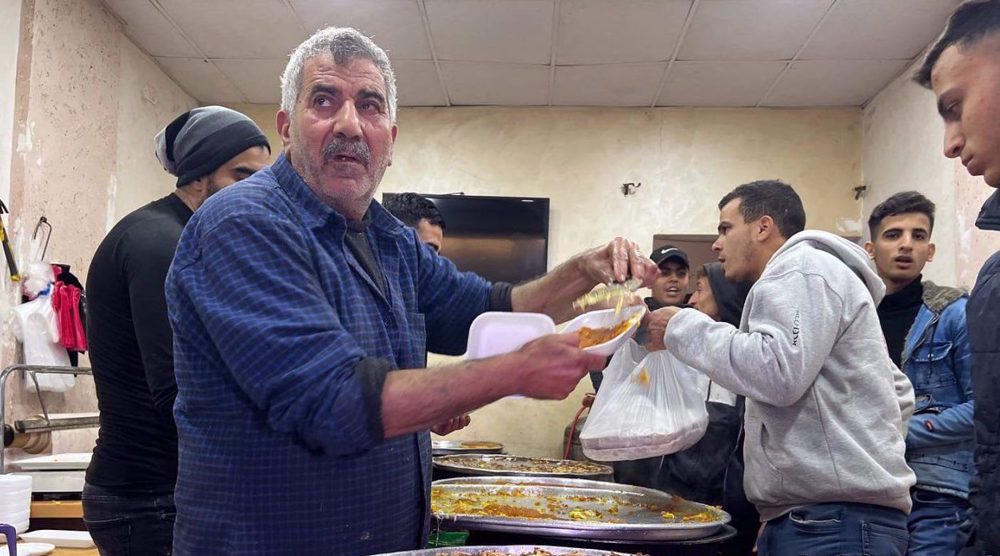
Over the years, Abu Shadi turned into a celebrity knafeh-maker in Gaza with local media generously publishing and promoting both his business and philanthropic activities.
Throughout his five-decade-long career in the pastry business, Qutati earned a reputation for his generosity, apart from his drool-worthy knafehs.
The massive popularity of the knafeh-maker was particularly evident on weekends when people would queue up outside his shop to buy his pastries. His pastries were regarded as one of the best in Gaza.
“Why am I called 'father of the poor'? Because everyone from the north to south, east to the west knows me, even if you go to Rafah and ask about Abu Shadi, they will know my location,” he once said in one of his media interviews.
His small restaurant in the Al-Zaytoun neighborhood east of Gaza had the tagline of “Let the poor eat.”
Palestinian writer Abdalhadi Alijla, in a post on X, formerly Twitter, paid an emotional tribute to Qutati.
“My cousin's husband, Abu Shadi, was renowned as one of the most famous kunafa sellers in Gaza. Last year, the queue at night in front of his shop on Salah al-Din Street would stretch very long,” he wrote.
“His kunafa was not only delicious and authentic but also affordable. He fondly referred to his kunafa as “the poor's kunafa”. He was killed along with my cousin, their children, and grandchildren.”
The sexagenarian was satisfied with his business and passionate about the work he was doing.
“My children are educated; Shadi is an English teacher, Muhammad is an architect, Ahmed is a pharmacist, but I also teach them how to make sweets and they help in my work,” Qutati said in one of his interviews in happier days.
He is only one of the more than 11,000 Palestinians who have been killed in the past five weeks, including the best and brightest of Gaza such as students, poets, doctors, lawyers and journalists.
The indiscriminate bombing of densely populated civilian areas has wiped off entire families in recent weeks. Even hospitals, universities and places of worship have been decimated.
According to ground reports, almost all bakery shops have also been shut in the besieged territory amid the indiscriminate Israeli shelling, leaving people without bread.
UN rights chief warns against full-scale Israeli offensive on Rafah
High-ranking Israeli 'security' official steps down amid Gaza war
Egypt to join South Africa’s genocide case against Israel
VIDEO | Operation True Promise
VIDEO | Press TV's news headlines
Iran voices readiness to assist flood-stricken people in Afghanistan
VIDEO | More displaced Palestinians flee Rafah as Israel presses with ground invasion
Islamic Jihad chief: Resistance best way to terminate Zionist occupation





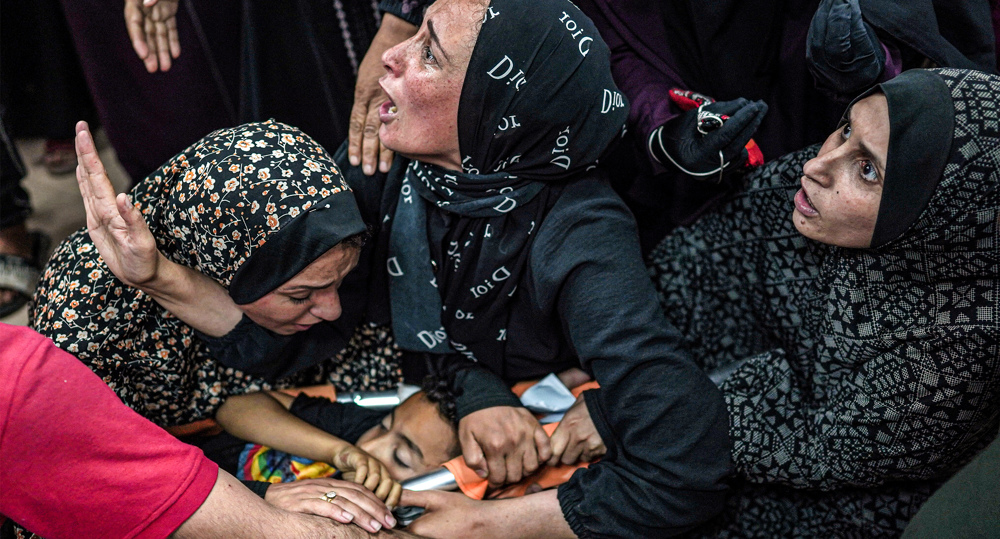
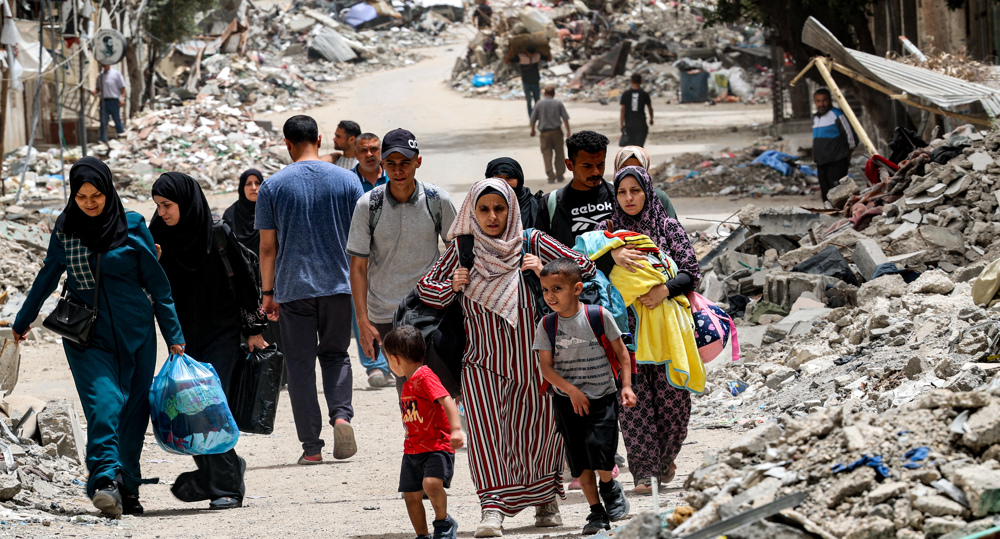





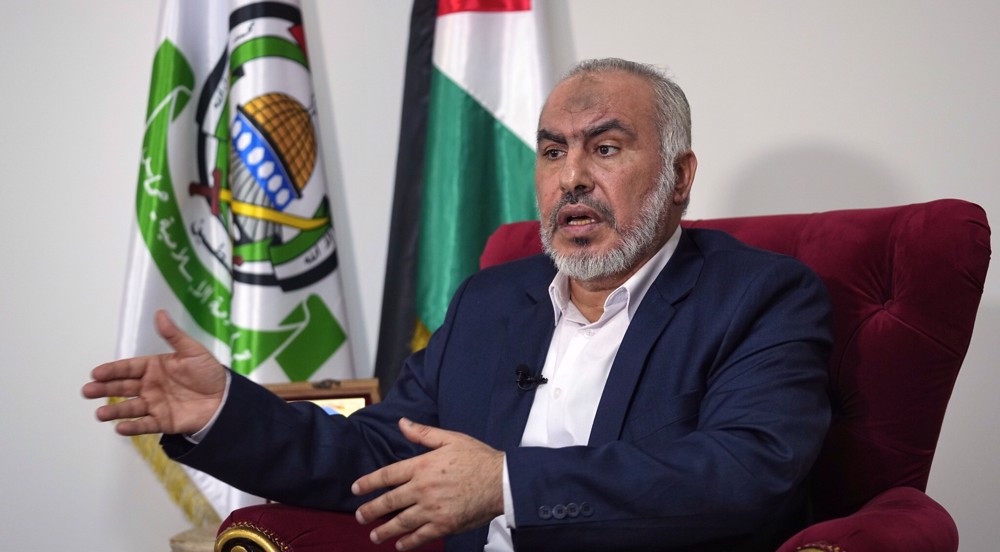

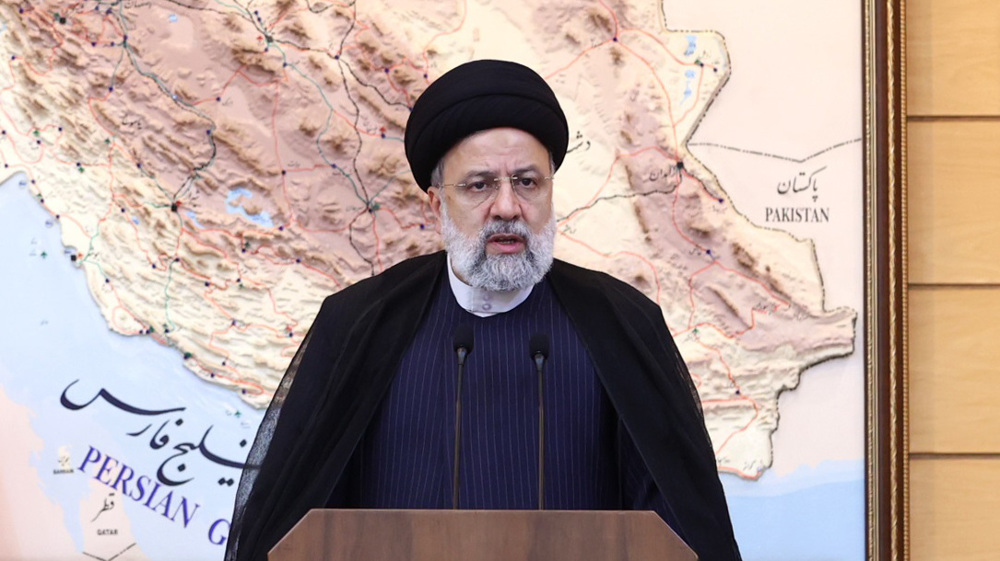

 This makes it easy to access the Press TV website
This makes it easy to access the Press TV website